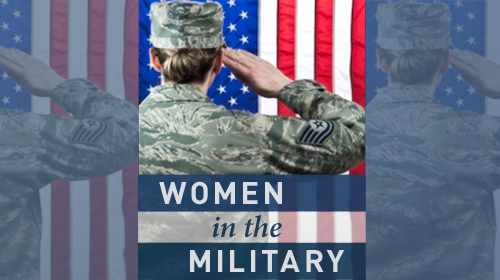
On Monday, a federal court judge heard oral arguments in the Freedom of Information Act (FOIA) case brought by the Service Women's Action Network (SWAN) and the ACLU seeking records from the Departments of Defense and Veterans Affairs regarding their response to sexual assault, sexual harassment, and domestic violence in the military. While the hearing has yet to yield a final ruling, one point was clear: the government continues to refuse to disclose documents that could reveal the human toll of military sexual and domestic violence.
Despite high rates of reported and unreported violence within the ranks, the government argued that producing the records we requested would not contribute significantly to public understanding of the operations of government and thus we were not entitled to a fee waiver. Nonprofit groups routinely seek, and obtain, fee waivers to contain the cost of accessing data because FOIA is intended to enable wide access to information about how our government functions.
However, in the government's view, the public needn't concern itself with the ugly details of the epidemic of sexual violence in the military. After all, it duly releases annual statistics on the prevalence of sexual assault within each branch, encapsulating in a tidy number how many thousands of episodes have been reported and what percentage of those cases result in courts-martial, nonjudicial punishment, and other corrective measures.
But isn't it vital for the public to understand how and why our government has failed to reduce violence experienced by our service members? Don't we need access to information about how service members have been able, or unable, to access remedies, services and benefits in order to better advocate for reforms?
Broad-brush statistics can only do so much. Without allowing the public to take account of the role that variables like race, gender, rank, and unit play in the disposition of the individual cases behind the statistics, the military can only enlighten the public as to what the problem is, not why it continues to flourish. The government's bird-eye approach to recording military sexual violence belies the severity of its toll among the most vulnerable members of the military community: young people, low-ranking individuals, women of color, and others. If the backbone of our Armed Forces is its enlisted personnel, disproportionately drawn from communities of color, it behooves us to assess the degree to which this foundation is undermined by sexual violence.
The information the government does make available to the public simply does not zero in on what we need to know. For example, despite a federal law that requires the government to track what action is taken by command on each domestic violence incident and the number of incidents that command determined should not lead to disciplinary action, the DoD still does not systematically collect and share this information.
Moreover, the government's reports on sexual assault completely fail to take account of sexual harassment, which is even more prevalent than assault among military personnel. In fact, in one recent VA study, 90 percent of respondents reported sexual harassment while in the military. VA research also reveals sexual harassment while in military service to be as strong a predictor of PTSD among women veterans as in-service sexual assault; this correlation mirrors the strong link between combat exposure and PTSD among male veterans. Moreover, Defense Manpower Data Center surveys have found an alarmingly high correlation between incidents of assault and prior incidents of harassment.
Our FOIA requests seek the underlying records of incidents of sexual assault and harassment and domestic violence, and veterans' claims relating to these incidents, so that we can uncover what the government has not yet analyzed or disclosed.
The judge indicated at the end of the hearing that he would likely rule in favor of SWAN and the ACLU on the fee waiver issue. Hopefully, his decision will bring us one step closer to the information we need to effectively end sexual and domestic violence against the women and men who defend our country.
Learn more about women in the military: Sign up for breaking news alerts, follow us on Twitter, and like us on Facebook.

